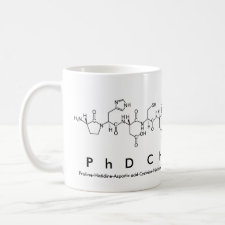
Authors: Guo MJ, Gao T, Fan Z, Yao JX, Xia JJ, Mi HF
Article Title: Molecularly imprinted polymers with assistant recognition polymer chains for bovine serum albumin.
Publication date: 2010
Journal: SCIENCE CHINA Chemistry
Volume: 53
Issue: (4)
Page numbers: 905-911.
DOI: 10.1007/s11426-010-0113-0
Alternative URL: http://chem.scichina.com:8081/sciBe/EN/abstract/abstract417111.shtml
Abstract: Abstract A new protein molecularly imprinted polymer (MIP) was prepared with grafting polyvinyl alcohol as assistant recognition polymer chains (ARPCs). The ARPCs and acrylamide monomers were interpenetrated and then polymerized on the surface of macroporous acrylate adsorbent spheres. The template BSA was removed by treatment with 2.00 mol L-1 potassium chloride (KCl) solution and the adsorbed proteins were detected with sodium dodecyl sulfate-polyacrylamide gel electrophoresis (SDS-PAGE). 0.150, 0.500, and 2.00 mol L-1 KCl solutions were used as eluent to wash the adsorbed proteins. The SDS-PAGE results show that proteins washed out with 2.00 mol L-1KCl solution were from nonspecific adsorption of macroporous acrylate adsorbent spheres, and proteins washed out with 0.500 mol L-1KC1 solution were specific proteins imprinted by MIP resins. MIP resins with ARPCs had better recognition to the target proteins than that without ARPCs. The adsorption capacity of MIP resins immobilized ARPCs to the template BSA was about 80-100 μg g-1 when it was used for the adsorption of proteins mixture, and the specific adsorption of the target protein was obviously increased
Template and target information: protein, bovine serum albumin, BSA
Author keywords: polyvinyl alcohol, assistant recognition polymer chains, molecular imprinting, protein



Join the Society for Molecular Imprinting

New items RSS feed
Sign-up for e-mail updates:
Choose between receiving an occasional newsletter or more frequent e-mail alerts.
Click here to go to the sign-up page.
Is your name elemental or peptidic? Enter your name and find out by clicking either of the buttons below!
Other products you may like:
 MIPdatabase
MIPdatabase









